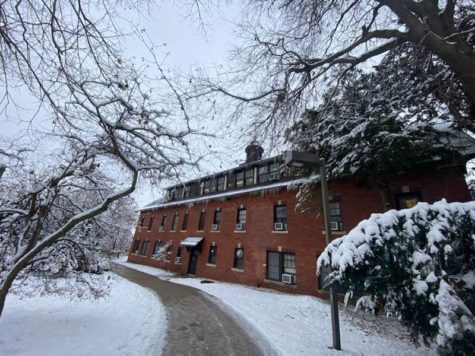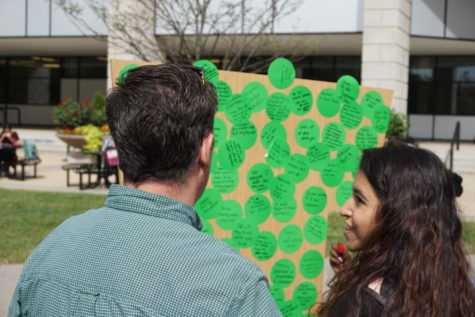Discover new, emerging careers in agriculture
October 13, 2014
Agricultural and life science professions are currently seeing an increase in the demand of jobs.
At Iowa State, the College of Agriculture and Life Science has experienced its third straight record-breaking year in undergraduate enrollment. This year the college has 4,475 undergraduate students, which is about 200 more students than last year.
“There is a strong agricultural economy and great jobs available in agriculture right now,” said the Program Manager for the College of Agriculture and Life Sciences, Andrew Zehr. “We consistently place 97 percent of our graduates within six months.”
“Students today want to make a difference in the world,” said Assistant Professor for the College of Agriculture and Life Sciences, Tom Polito.
There are needs across the board from feeding the people of the world to coming up with renewable resources, all of which fall under agriculture.
“When young people look down the road at ‘where can I make a difference’ and they see those areas, it’s natural, I think, for them to look at us,” Polito said. “The major issues related to society are what we do.”
With the demand for agriculture continuing to grow, some fields are standing out more than others. Traditional agricultural and life science professions, such as farming, agricultural business and agronomy still remain high in demand.
“There is a job at the end of the tunnel. There’s a career out there and a high demand for a lot of our students in a lot of areas,” said the Director of Communications for the College of Agriculture and Life Sciences, Brian Meyer.
“The thing with agriculture is it never stops growing,” said sophomore in animal science Brian Odino.
Agronomy and food science fields have been emerging. Odino stated the corn industry has been doing very well, and people are also wanting to know more about their food safety and quality.
Besides just the traditional fields of agriculture and life science, more fields that deal with the hard sciences are also emerging.
Meyer mentioned that areas like genetics, biology, biological chemistry and horticulture are just some of the more hard sciences that are skewed towards agriculture that many forget about.
Agricultural technology is another emerging field that many do not know about.
Tractors now are being driven by GPS and satellites within inches of accuracy, and farmers have started to use computers and data to determine how much fertilizer is needed in certain areas of their fields, said Zehr.
“Many people do not realize how technically advanced agriculture is,” said Zehr. “If machinery and technology wasn’t important, would there even be an engineering college?”
Though some fields are emerging more in agriculture and life science, the demand in all fields have stayed pretty consistent across the board.
“You don’t have a 97 percent placement rate when you have an area that is really low,” Polito said.
“In my opinion everything revolves around agriculture, from crops to animals,” said Sydney Rous a freshman in microbiology. “It’s always evolving somehow.”
















